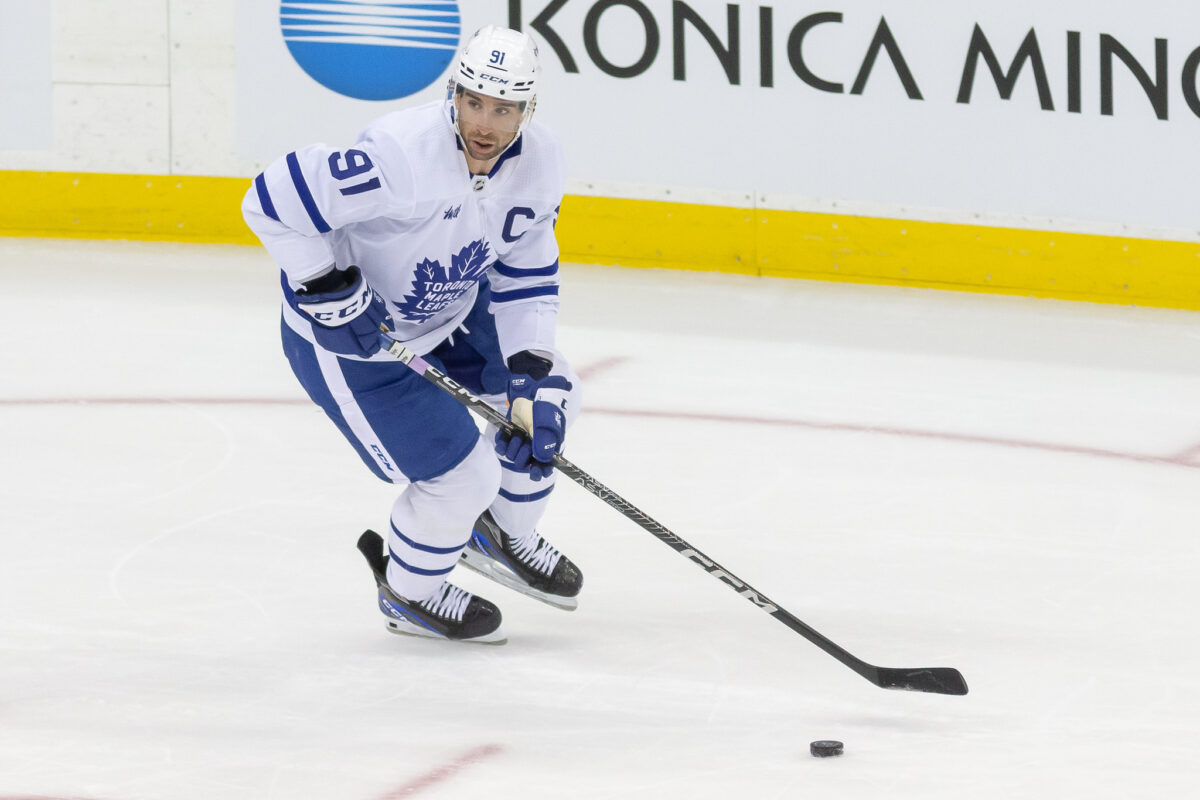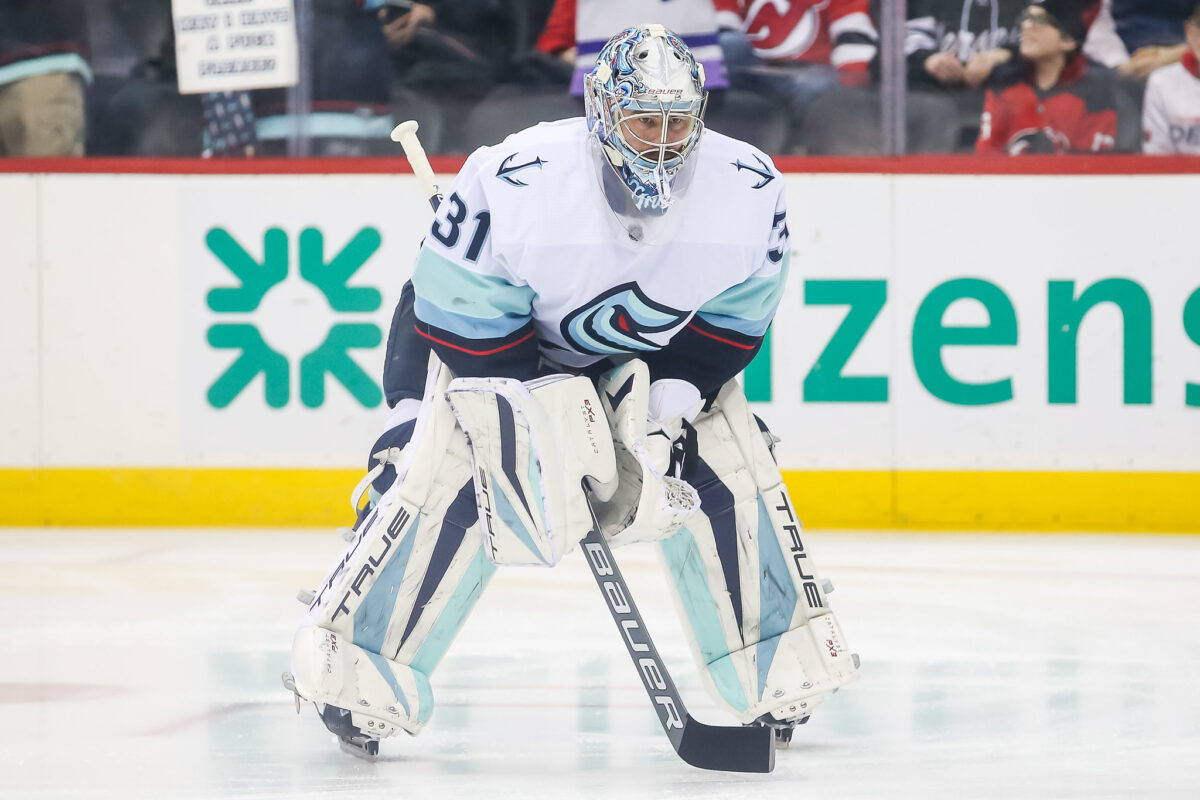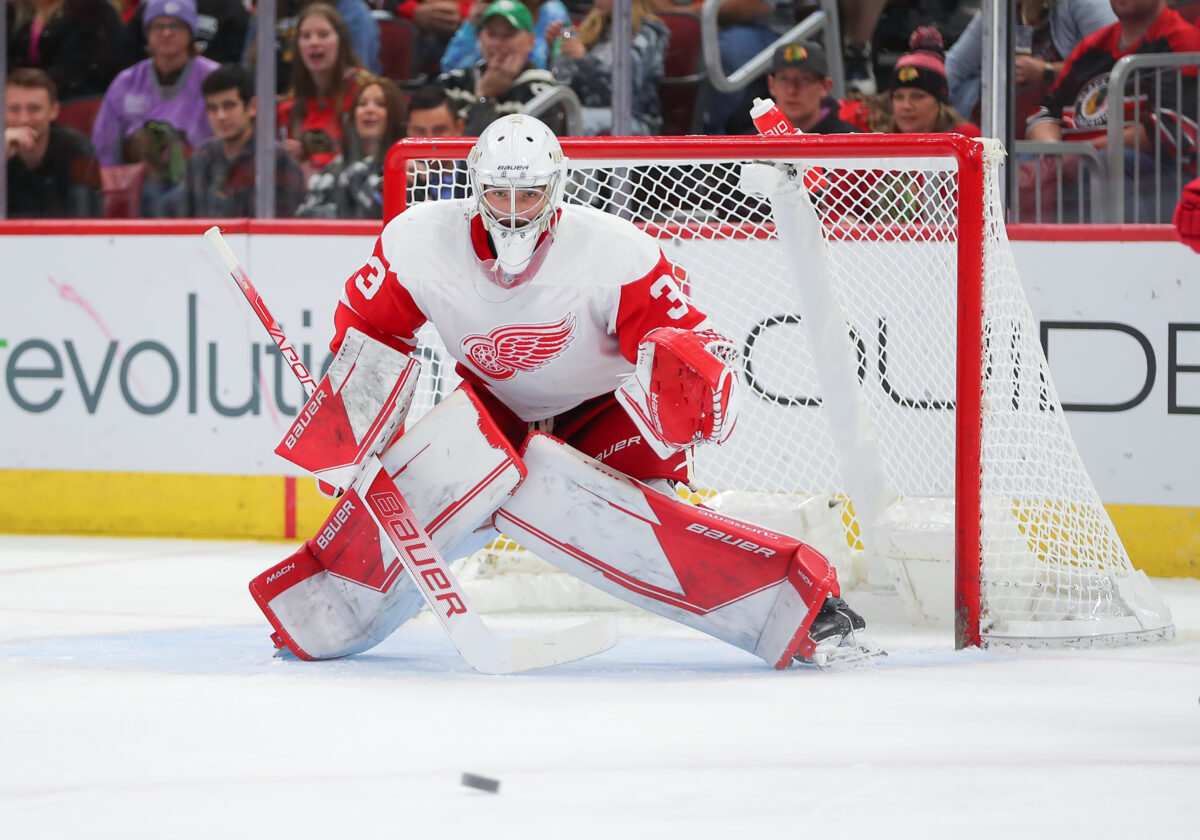It’s an understatement to say that the Detroit Red Wings aren’t close to winning a Stanley Cup right now. While they are an improved team from last year, there is still a lot of ground to make up before being called a contender.
Related: How Much Did the Detroit Red Wings Improve in 2022-23?
Looking at the teams that made the playoffs, it’s clear that the Red Wings are missing some pieces to get to the Stanley Cup Final, let alone the postseason. Let’s take a look at three things that they’re missing in order to compete for a Stanley Cup. We’ll focus on internal candidates who could fit the bill down the line.
First Line Center Playing on the 2nd Line
A contending team needs to have two really good lines to produce in the postseason. Opposing teams typically play tighter defensively, making a second productive line necessary. Looking at some second-line centers on playoff teams this year, some great examples would be Ryan Nugent-Hopkins (RNH), Brock Nelson, Joel Eriksson Ek, and John Tavares.

If you take the average production for these four players, you get 33 goals, 47 assists and 80 points. That’s a point-per-game player over a full 82-game season. These players don’t grow on trees, but two candidates could fit the bill within the Red Wings organization.
| Player | Goals | Assists | Points |
| RNH | 37 | 67 | 104 |
| Nelson | 36 | 39 | 75 |
| Eriksson Ek | 23 | 38 | 61 |
| Tavares | 36 | 44 | 80 |
Marco Kasper would be a prospect to consider, though he would not be this type of player immediately. Kasper would need two to three years minimum to get to the point of being a productive second-line center. A close comparison would be Eriksson Ek (mentioned above), who’s in his sixth full season and finally had a 60-point year. I believe Kasper can reach 60 points in three years.
Another internal candidate would be Andrew Copp, who’s a solid second-line center at this point in his career. But on a contending team, he’s probably a third-line center. If Kasper could elevate his game to the ballpark of Dylan Larkin’s, that is the ideal outcome. If not, an external option is more likely.
Top Defender on the 2nd Pair
Some people say defence wins championships. I’m not sure if it does, but it certainly helps, at the very least. Depth on the blue line is necessary to win. Outside of Moritz Seider, Jake Walman, and maybe Olli Maatta, the Red Wings lack top-four defenders.
A few defencemen who fit this mold are Hampus Lindholm, Brandon Montour, Darnell Nurse and Brady Skjei. Each defender could be (or was) on the top pairing, and each defender knows what they need to do defensively to suppress shots on their own goaltender.
| Player | Goals | Assists | Points |
| Hampus Lindholm | 10 | 43 | 53 |
| Brandon Montour | 16 | 57 | 73 |
| Darnell Nurse | 12 | 31 | 43 |
| Brady Skjei | 18 | 20 | 38 |
With these four players, the average points work out to 52, breaking down to 14 goals and 38 assists on average. Montour was the highest-scoring defender for the Florida Panthers, even though he’s on the second pairing. Nurse was a first-pairing defenceman until Mattias Ekholm was acquired at the deadline. Who on the Red Wings could amass 50+ points on a second pairing?
Simon Edvinsson has the potential to be a 50-point defender. Additionally, he’s only going to get better defensively as he gets stronger and more acclimated to NHL-sized ice rinks. He has the potential to be a top-four defender and is trending similarly to another defenceman in Nurse.
Related: Red Wings’ Chiarot Is Not a First-Pairing Defenseman
I will not put Ben Chiarot in this category. Yes, he brings an element to his game that is helpful for the Red Wings and is something they lack. But he also needs to have his workload managed. He’s a third-pairing defender at best at this stage of his career. Chiarot is around the team more for his intangibles than his on-ice product (in my opinion).
Top-10 Goalie in the League
Goaltending is viewed by most to be a volatile position. Being strong mentally is almost as important as squaring up to a shot and your ability to control rebounds. For this position, you want to have a couple of goalies on your roster who want to prove themselves. For the sake of this article, let’s look at some numbers for Stuart Skinner, Philipp Grubauer, Jake Oettinger, and Alexandar Georgiev.

| Player | GP | W | GAA | SV% | 5×5 SV% | Quality Starts | QS% |
| Skinner | 50 | 29 | 2.73 | .914 | .924 | 29 | 58.0 |
| Grubauer | 39 | 17 | 2.85 | .895 | .905 | 22 | 56.4 |
| Oettinger | 62 | 37 | 2.35 | .919 | .923 | 38 | 61.3 |
| Georgiev | 62 | 40 | 2.51 | .919 | .929 | 41 | 66.1 |
To contrast with a current Red Wings netminder, Ville Husso had played 56 games. His stat line included 26 wins, 3.11 GAA, .896 SV%, .903 five-on-five SV%, and 26 quality starts for a 46.4 QS%. The closest goalie to Husso in stats was Grubauer, who played 17 fewer games and only had four fewer quality starts. It’s clear to me from this that you need to have a goaltender with over a 55 quality start percentage (quality start is a save percentage above league average), a .910 SV%, and a .920 five-on-five SV%.

The Red Wings’ goalie of the future, Sebastian Cossa, is my pick for the internal candidate to fill this role. The unfortunate thing is that goaltenders like Cossa usually take three to four years to even sniff out regular NHL starts.
This list is not exhaustive, but it is necessary for the Red Wings to add players of this design if they are to go back to being postseason contenders.
